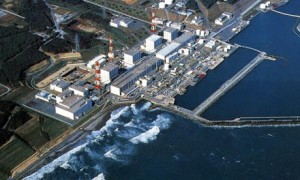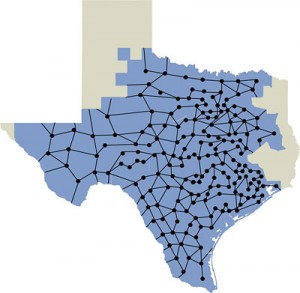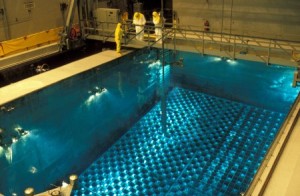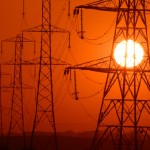20 item(s) were returned.
President
Micro-Utilities, Inc.
The meltdowns at three nuclear plants at Fukushima, Japan almost three years ago were an economic disaster, but were these plants inherently unsafe? Did the Fukushima designs provide adequate safety during extreme circumstances? The magnitude 9 earthquake that hit Japan in 2011 was its largest ever. However it was the enormous tsunamis that led to meltdowns. At Fukushima the spent fuel pools never leaked water in spite of the earthquake, its aftershocks, and tsunamis. Even Fukushima’s emergency power systems initially survived the earthquake, only to be soon destroyed by the tsunamis. The nuclear plants at Fukushima were in an extreme… [more]
View InsightMember
U.S. House of Representatives
Earlier this week, H.R. 3826, the “Electricity Security and Affordability Act,” which I co-authored with Senator Joe Manchin (D-WV), advanced through the House Energy and Power Subcommittee, by a vote of 18 to 11. This bipartisan, bicameral legislation provides a reasonable alternative to EPA’s proposed greenhouse gas standards for new power plants and the agency’s planned regulations for existing power plants. It now moves to the full Energy and Commerce Committee for consideration. Under EPA’s proposal, industry would not even be able to build the most state-of-the-art clean coal-fired power plant, because the technology required under the proposed regulation is… [more]
View InsightAbout 85% of Texas residents purchase their electricity in a deregulated, competitive market, while the electric rates in a few major metropolitan areas (Austin, San Antonio) are regulated by the State. Residential electricity prices in Texas’ deregulated market dipped below the national average price for power in 2012, according to a recent report by the Texas Coalition for Affordable Power (TCAP), but deregulated prices still remain significantly higher than prices in the regulated areas of Texas. According to a post on Bitcoin Motion, the Texas electric deregulation law, adopted in 1999, gives consumers in most areas of Texas the ability… [more]
View InsightSince the development of the Yucca Mountain Nuclear Waste Repository was terminated in 2011, no long-term plan for storing spent nuclear fuel accumulating at nuclear power plants has been developed. As a result, utilities have been forced to store spent nuclear fuel “on site,” where storage space grows tight and is increasingly expensive to manage. The federal government is required by law to provide (since 1998) offsite storage for spent nuclear fuel, but has yet to do so. Furthermore, until last month’s ruling by a federal appeals court, the Department of Energy (DOE) had been collecting a fee from nuclear… [more]
View InsightVice President, US Retail Regulatory Strategy
National Grid, US
With the exception of EPA rulemaking and stimulus, federal energy policy has been at a virtual standstill since EISA 2007. That makes state legislatures and regulators the focal point for new ideas. California, with its aggressive efficiency and renewable targets, has continued to be a key market for addressing the financial and operational costs of configuring a new energy system. In a previous life, I remember an industry colleague’s advice on drafting energy legislation; “create principles regulators can tweak rather than inflexible legislative fiat”. This expression comes to mind as a litmus test for California’s new landmark energy legislation; Assembly… [more]
View InsightState Representative
Maine State Legislature
On June 11, 2013, the State of Maine passed the first legislation in the nation to protect the electric grid against electromagnetic pulse (EMP) and geomagnetic disturbance (GMD). EMP’s, such as high-altitude nuclear explosions, and GMD’s, such as major solar flares and storms, have the potential to critically disrupt or destroy the electric grid. In March 1989, a moderate solar storm hit Quebec, Canada, causing a province-wide blackout that cost two billion dollars in direct damage, and scattered effects throughout the northeast United States. The Maine legislation that I sponsored, LD 131, “Directing the Public Utilities Commission To Examine Measures… [more]
View InsightUniversity Distinguished Professor
Michigan State University, Dept. of Chemical Engineering
High energy use (power consumption) increases wealth, health and education levels. Since the beginning of the Industrial Revolution, most energy has come from fossil fuels: coal, oil and natural gas. Whatever the eventual lifetimes of these fossil energy resources, they are not renewable. Sooner or later, fossil energy will not be available to underpin our prosperity. Thus non-renewable energy is not a long-term option. We must have renewable energy if we are to maintain high living standards among advanced economies, and if more people in developing nations are to access enough energy to develop their human potential. But how much… [more]
View Insight“Our National Energy Policy: Post-Election Prospects and Challenges” December 14th, 2012 National Press Club, Washington, DC See below for an abridged version of the transcript and a full video recording of the event. You can view or download the full transcript here. Opening Remarks: WILLIAM SQUADRON, President, OurEnergyPolicy.org Speakers: JAMES CONNAUGHTON, Executive Vice President and Senior Policy Advisor with Exelon Corporation and Former Chairman of the White House Council on Environmental Quality GENERAL JAMES L. JONES, USMC (retired), Senior Fellow at the Bipartisan Policy Center, Senior Advisor to the American Energy Innovation Council with the Bipartisan Policy Center, and Former… [more]
View InsightNumerous studies by accredited groups, such as the Congressional Electromagnetic Pulse Commission, the National Academy of Sciences, the Oak Ridge National Laboratory, have concluded that solar storms and resulting geomagnetic disturbance are a critical threat to the reliability of electric grids. The recent report from the U.S. National Intelligence Council, “Global Trends 2030: Alternative Worlds,” presented solar geomagnetic storms as one of eight “black swan” events that could change the future course of human history. Solar storms effecting power grids are not merely a hypothetical scenario. A moderate solar storm hit Quebec, Canada in March 1989, causing a province-wide blackout. Despite the… [more]
View InsightLast year, significant growth in natural gas production combined with low demand – due to a warm winter – caused natural gas prices to plummet below US$2 per thousand cubic feet. This benefited consumers, but forced some energy companies to abandon gas drilling programs and put significant pressure on their budgets, most notably Chesapeake Energy Corp. The decade-low prices also facilitated a transition in electric power generators from coal to gas, and in some cases nuclear to gas. However, according to EnergyWire, some analysts, like James Sullivan of Alembic Global Advisors, believe that this short-term electricity fuel transition has maxed… [more]
View Insight






